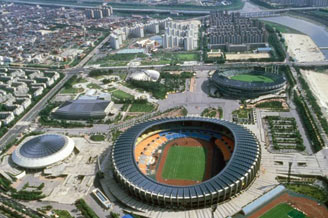
On the morning of September 6, 1972, Avery Brundage, president of the International Olympic Committee, addressed 75,000 mourners gathered in the previous day eight Palestinian terrorists had broken into the Olympic Village, taking hostages, but all nine were killed in a gunfight in which five of the terrorists were shot dead.
For the next 34 hours the Games were suspended and their fate hung in the balance. Then, at an open-air memorial ceremony watched on television by an estimated 1000 million people throughout the world, 84-year-old Avery Brundage, a former American track star and sports administrator, stated: ‘The Games must go on – and we must continue our efforts to make them clean, pure and honest and try to extend the sportsmanship of the athletic field into other areas.’
If it had not been for Avery Brundage’s determination, the 1972 Olympic Games might have been abandoned – and the future of the Olympics jeopardized. It takes a full six years to plan and organize the Games – and preparations were already underway for the next Olympics – in Montreal, Canada, in 1976.
By then the Irish peer Lord Killanin was the president of the International Olympic Committee, and he later recorded: ‘The horror of the assassinations in the Olympic Village in Munich changed the whole concept of security, which, as a result, took a very high priority in the Montreal Games…’
The number of armed troops and policemen outnumbered the 6189 athletes and set the pattern for future Games – such as those in Seoul, South Korea, in 1988, when in the weeks leading up to the Games the 100,000-strong security and anti-terrorist forces had to deal with bands of rioting students demanding political freedoms.
In terms of competitors, the Seoul Games were the biggest so far – with more than 9400 men and women representing 160 countries, competing in 237 events covering 23 different sports. Like all the modern Olympics, the event was run by the International Olympic Committee (the IOC) based in Lausanne, Switzerland. The IOC, the guardian of the Olympic ideals, chooses where the Games will be held and decides which sports will be included.
Picture Credit : Google

